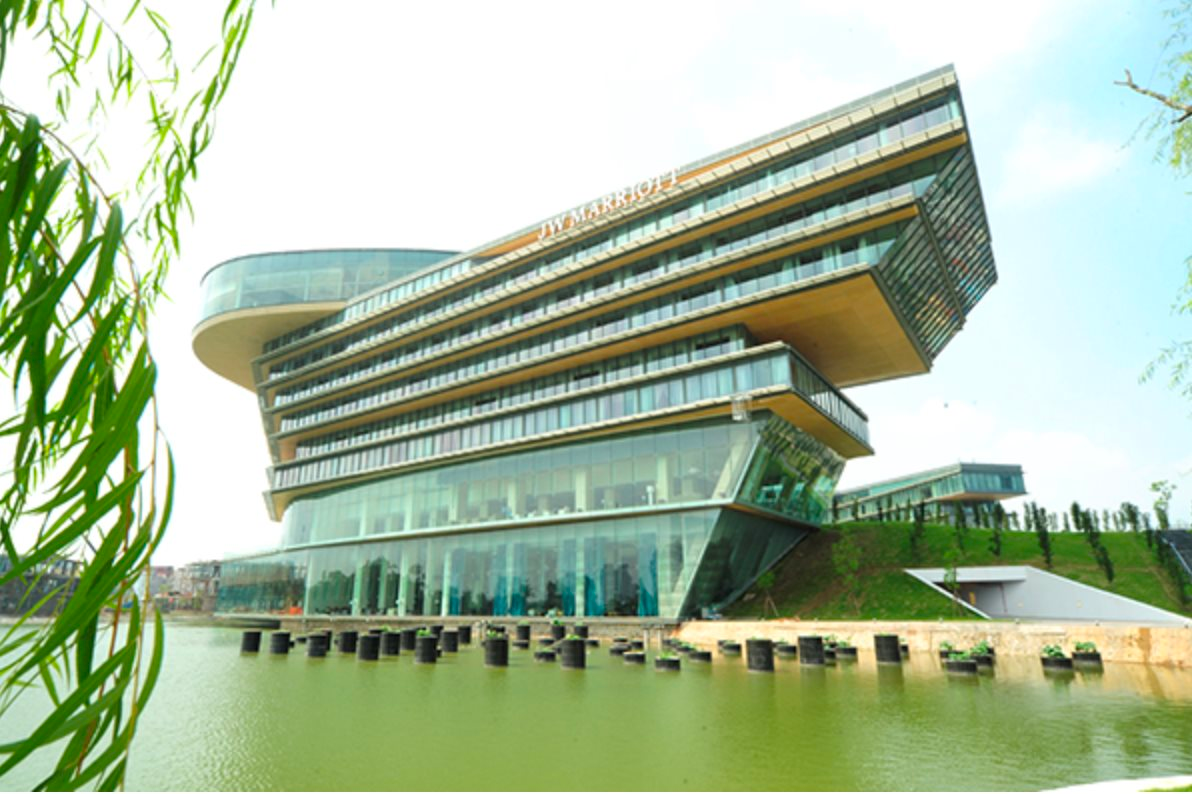
A renowned global hotel brand has arrived in Vietnam. (Image: Int)
Rising Middle Class Fuels Hotel Industry Growth
The robust recovery of international tourism is bolstering Vietnam’s hospitality sector. However, this resurgence is manifesting differently across regions. While hotels in Hanoi and Ho Chi Minh City are seeing improved business through higher room rates, coastal destinations like Nha Trang, Phu Quoc, Cam Ranh, and Ha Long Bay are experiencing significant increases in occupancy rates.
Mauro Gasparotti, Senior Director of Southeast Asia at Savills Hotels, noted, “Vietnam’s hospitality market is entering a new cycle, with average room rates and occupancy levels showing marked improvement. Previously, many markets faced pressure from new supply, intensifying challenges for hotel operations. However, with positive market signals, the hospitality sector is achieving strong results across most destinations.”
Currently, the hospitality industry is entering a phase requiring new development strategies, with a heightened focus on service quality, particularly in key destinations such as Ho Chi Minh City, Hanoi, and coastal tourism hubs like Da Nang and Phu Quoc.
In Ho Chi Minh City, administrative boundary expansions and infrastructure development plans, including aviation, are creating significant opportunities for diversifying hospitality offerings. These range from standard hotels and design-focused accommodations to extended-stay models, branded residences, and mixed-use projects.
By 2035, over half of Vietnam’s population is expected to join the middle class, with higher incomes and spending power. Coupled with the growing influx of international tourists, the domestic tourism and hospitality sectors are poised for robust growth, laying the foundation for various hotel types, including lifestyle and boutique segments.
Uyên Nguyễn, Deputy Director at Savills Hotels, shared that the rise of Vietnam’s middle class, especially among younger generations, has spurred tourism growth. To tap into this potential, hotel operators are focusing on brands that meet market demands. For instance, Hilton recently partnered with a domestic hotel chain to launch the Tru by Hilton brand in major cities and emerging destinations.
Ascott is also promoting its lyf brand, a co-living concept tailored for the new generation of travelers. Other operators like Marriott, IHG, and Accor are expanding in this segment with brands such as Moxy, Voco, and Tribe, contributing to the diversification of Vietnam’s hospitality landscape.
Trends in International Brand Partnerships
In Vietnam, partnerships with international hotel brands are on the rise, with the share of internationally branded hotels increasing from 24% to 32% over the past decade. Global brand recognition, distribution networks, and standardized operations are driving interest in collaborations with international operators.
This trend extends to the residential real estate sector, where developers are focusing on branded residences with superior design quality and service standards. In Asia, the branded residence segment is experiencing strong growth, with Vietnam emerging as a key market attracting significant attention.
Vietnam currently has 21 operational branded residence projects, ranking second in Southeast Asia after Thailand. Both countries are among the top 10 globally in terms of new project supply, accounting for 6% and 5%, respectively.
According to Mauro, “Branded residences are increasingly attracting investor interest, with selling prices 23% higher than conventional properties in Asia in 2024, a figure expected to persist in 2025. Notably, several projects in Vietnam are approaching price levels seen in developed markets like Bangkok.”
Uyên added that in Vietnam, branded residences are primarily located in coastal areas and are often viewed as investment products, with approximately 80% of projects offering rental programs to generate income from operations. International hotel operators such as IHG, Marriott, Accor, Melia, Banyan Group, and Hyatt are leading the branded residence segment in Vietnam, both in completed and developing projects.
To support Vietnam’s real estate and hospitality sectors, Mauro Gasparotti and Uyên Nguyễn, along with leading domestic and international experts, will discuss the latest market insights and prospects at the Meet The Experts conference in early October 2025 at Ascott West Lake Hanoi. The event will provide valuable information, forecasts, and in-depth perspectives on factors shaping Vietnam’s real estate market, opportunities and challenges for branded residences, and new prospects for the domestic hospitality industry.
Billionaire Nguyen Thi Phuong Thao Meets with NYSE Chairman as Market Surges 48 Points
New York, USA – September 22, 2025 – As part of the official visit coinciding with President Luong Cuong’s attendance at the United Nations General Assembly, Dr. Nguyen Thi Phuong Thao, Chairwoman of Vietjet and Vietnam’s leading female billionaire, toured the New York Stock Exchange (NYSE), the world’s largest and most historic financial hub.
Ho Chi Minh City’s New Term: Realizing the Vision of a World-Class ‘Super Metropolis’
The draft Political Report for the 1st Party Congress of Ho Chi Minh City’s Party Committee, term 2025-2030, outlines a clear vision: by 2030, the city aims to emerge as a civilized, modern metropolis, leading as a dynamic hub of innovation and integration in Vietnam’s industrialization and modernization efforts. It seeks to establish a prominent position in Southeast Asia, rank among the top 100 global cities, and become a high-income, livable urban center with a world-class innovation ecosystem.
Lightning-Fast Delivery: Giao Hàng Nhanh Invests $14.5M in 309 New Trucks
On September 19th, Giao Hàng Nhanh finalized the delivery of the last trucks in its new batch of 309 vehicles, representing a significant investment of 330 billion VND. With this addition, Giao Hàng Nhanh now boasts an impressive fleet of nearly 1,500 trucks, offering a wide range of load capacities.




















